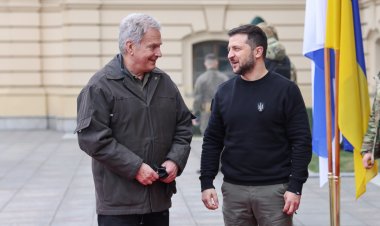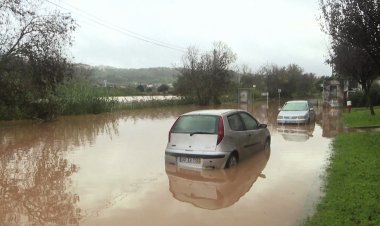Germany to Implement Temporary Border Controls

Germany will work closely with neighboring countries in implementing temporary border controls, said Friedrich Merz, head of the German opposition CDU.
Merz said his party would make no decision on further talks until the German government has given written assurances on the comprehensive rejection of refugees at Germany's borders.
Federal Interior Minister Nancy Faeser (SPD) had earlier announced new border controls at all German borders and invited to new talks with the CDU/CSU and the federal states.
Merz rejected the accusation that the CDU/CSU wanted to close the borders, which would also burden the movement of goods in the EU internal market.
"We are explicitly not saying ‘closing the borders’, but ‘controlling the borders’. And that is a real difference,” he emphasized. Such measures by Germany would certainly have repercussions for neighboring countries. But he said he had offered Chancellor Olaf Scholz the opportunity to talk to the conservative heads of state and government in the EU.
Faeser had said that it would keep the impact on border regions as small as possible.
Germany's government announced temporary border controls at all of the country's land borders in what it called an attempt to tackle irregular migration and protect the public from threats such as Islamist extremism.
The imposition of temporary border controls could be another test of European unity.
Germany shares its more than 3,700-km-long land border with Denmark, the Netherlands, Belgium, Luxembourg, France, Switzerland, Austria, the Czech Republic and Poland.
Austria's Interior Minister Gerhard Karner said that his country would not take in any migrants turned away by Germany at the border.
"There's no room for maneuver there," he said.
The controls will start on Sept. 16 and initially last for six months, the interior ministry said in a statement.















